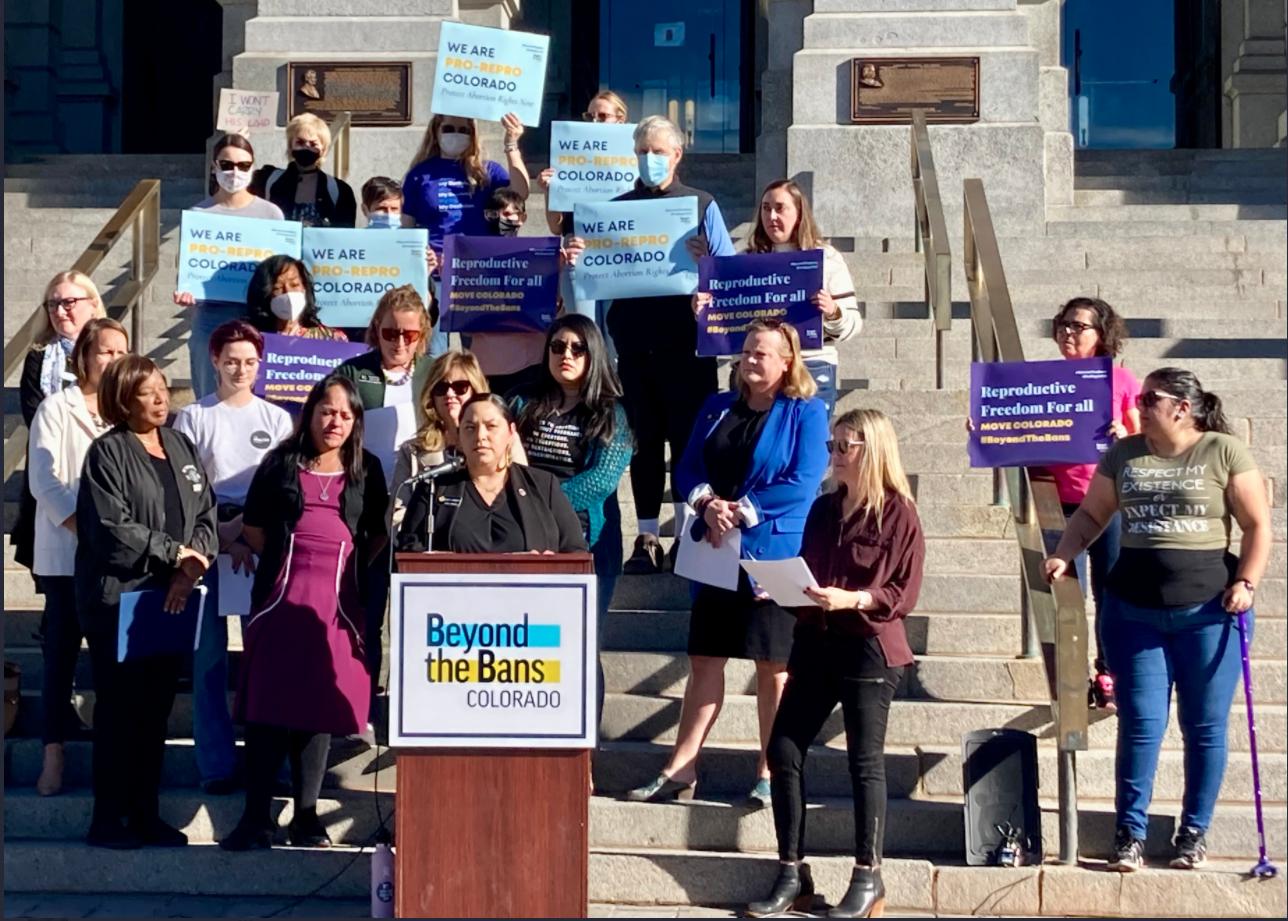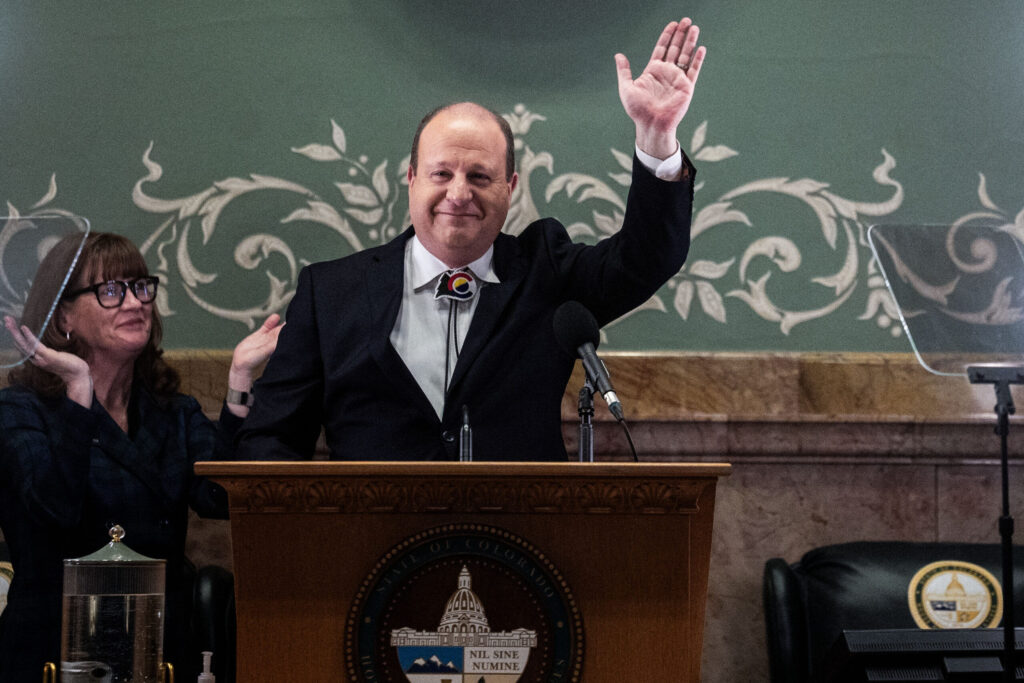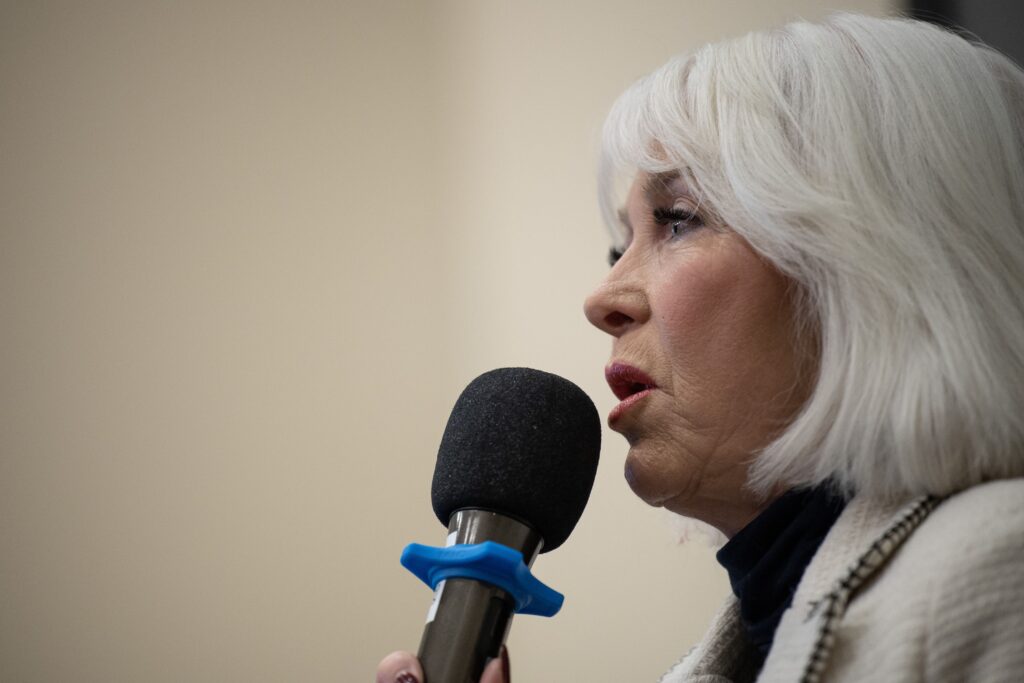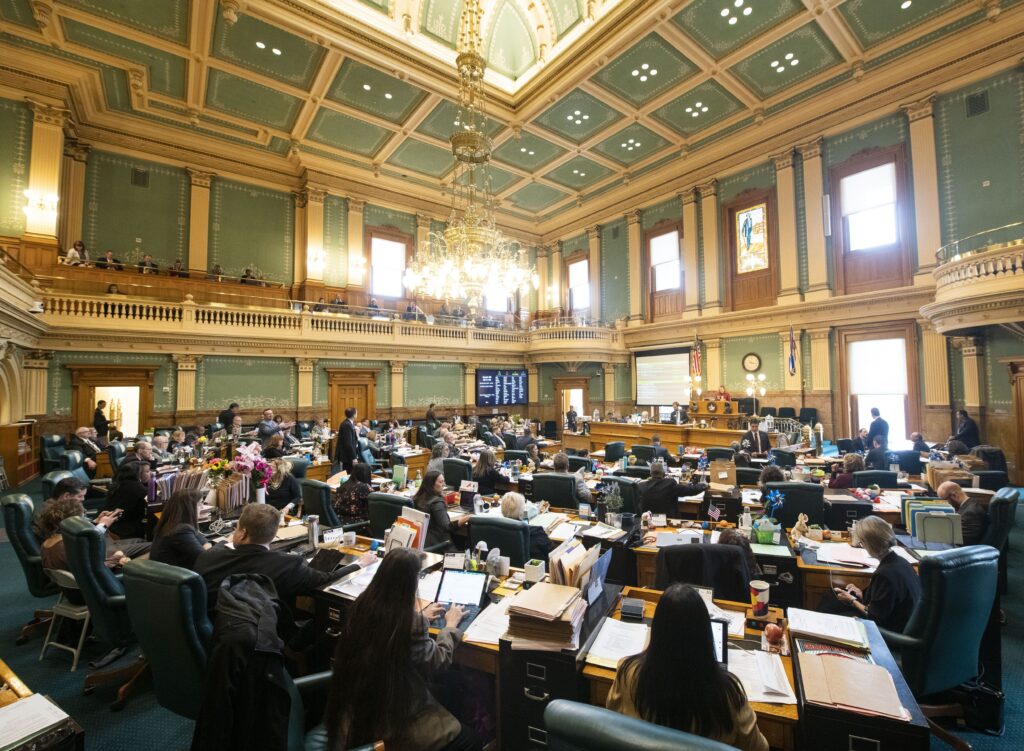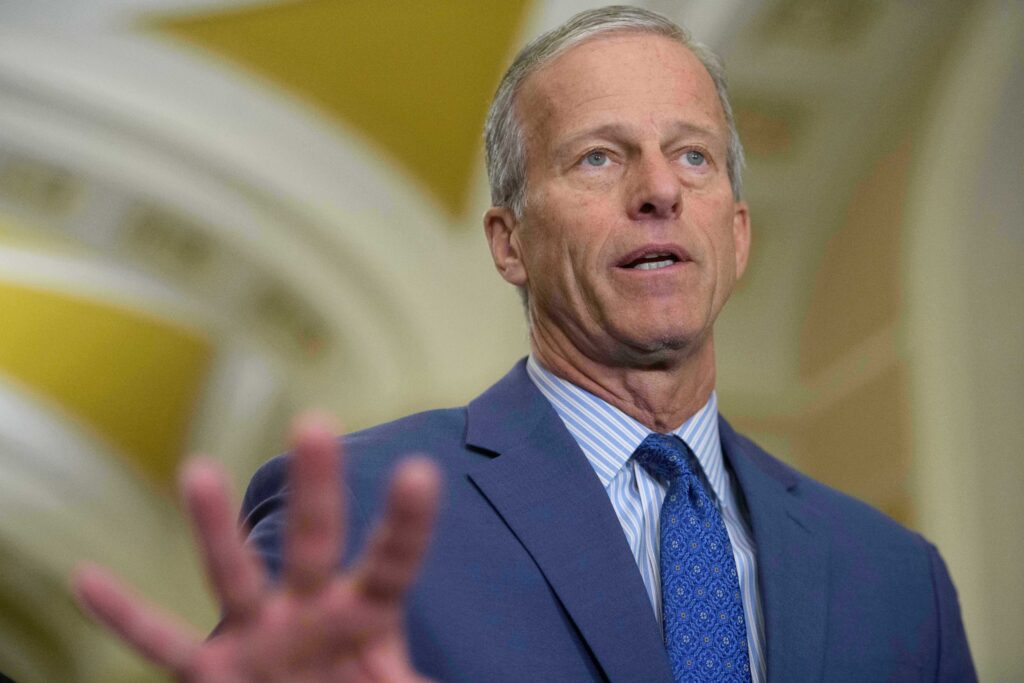Colorado Democratic lawmakers to sponsor bill upholding women’s right to abortion in 2022 session
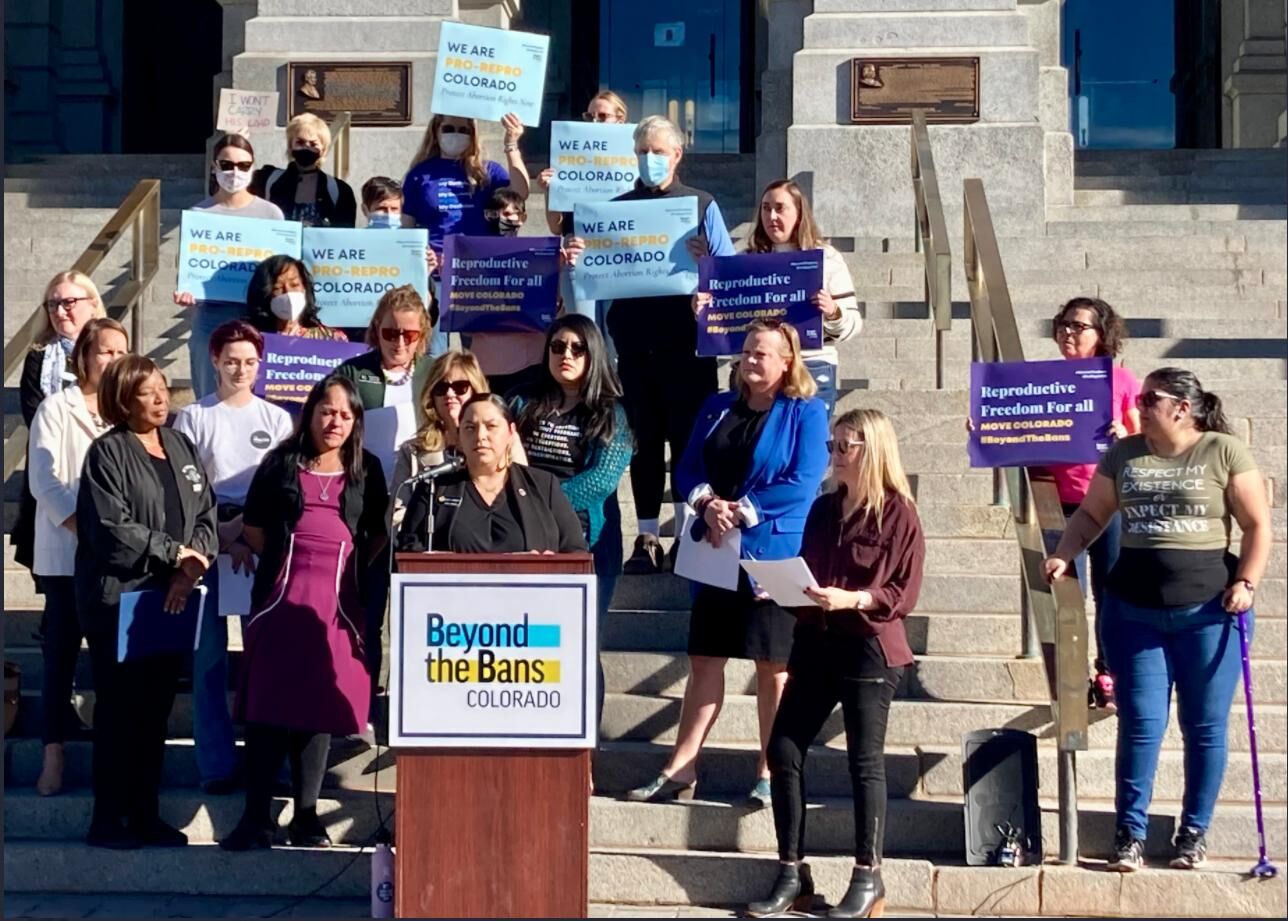
The prospect that the conservative majority on the U.S. Supreme Court will overturn Roe v. Wade is pushing Colorado’s Democratic women legislators to act, long before a decision from the court is likely.
The nation’s highest court is reviewing Dobbs v. Jackson Women’s Health Organization, a 2018 Mississippi law that bans abortions after 15 weeks. Justices heard two hours of oral arguments Wednesday.
Three Democratic lawmakers – Sen. Julie Gonzales of Denver, Rep. Meg Froelich of Greenwood Village and House Majority Leader Daneya Esgar of Pueblo – announced Wednesday they will team up to offer a Reproductive Health Equity Act in the 2022 legislative session that begins on Jan. 12.
The act is also supported by the Colorado Organization for Latina Opportunity and Reproductive Rights (COLOR), and COBALT, which also backs abortion rights.
Froelich told Colorado Politics the bill would ensure access to abortion and contraceptives and answer “the hue and cry, post-Texas and with the added zest from yesterday’s Supreme Court oral arguments, which made us all take a moment.”
She added: “I take no joy in jumping up and down for the last two decades, saying, ‘Watch out, this is coming.’ The current political atmosphere has told us that without specific protections in place, we are subject to the vagaries of the court and can’t count on them to preserve or uphold our rights.”
What’s significant about this latest push, Froelich said, is that it’s led by COLOR and COBALT and puts communities of color and women of color front and center.
“Whatever rights we have are meaningless without access,” Froelich said, adding attempts to limit access to abortion services hurt people who are young, with less resources, as well as folks from communities of color and rural areas. They also hurt indigenous people, she said.
“We want to make a strong statement that you have the right to access the full range of reproductive care, from contraception to abortion and everything in between, and specifically including abortion,” said Froelich, acknowledging Democrats have tap-danced around it in the past.
In a statement Wednesday, Gonzales and Sen. Faith Winter, D-Westminster, said “Coloradans believe abortion should be safe and legal.” They called the Mississippi law an outright attack on Roe v. Wade and a “dangerous attempt to deny thousands of women access to critical health care.”
Their statement added: ” Let’s be clear: restrictive policies or outright bans do not stop people from seeking an abortion. Instead, individuals are forced to seek out unsafe abortions or carry a pregnancy to term. Colorado has successfully defeated four anti-abortion ballot measures by wide margins and numerous anti-abortion bills in the legislature, and we will continue to defend access to reproductive health care to ensure that we remain a safe haven for abortion care.”
COBALT spokesperson Lauren Chapin told Colorado Politics that the bill is going through a stakeholder process and draft language is not yet available. However, Chapin said, the legislation would “affirmatively protect access to a full range of reproductive health care, including abortion, and it means the state would be sure that access is available and there is nothing that infringes that access or limits availability of information or access to care and services.”
COLOR claimed Wednesday that, if the Court overturns Roe v. Wade, 26 other states will also likely ban abortions, citing the pro-choice Guttmacher Institute. Twenty-two states already have laws or constitutional amendments weakening abortion access, including eight states that have retained pre-Roe abortion bans, according to Guttmacher. Colorado’s General Assembly repealed its pre-Roe ban in 2008.
Guttmacher also points out that 15 states and the District of Columbia have laws protecting the right to abortion. But Colorado isn’t one of them.
According to a Center for Reproductive Rights map, if Roe were overturned, abortion would likely remain accessible in Colorado but without legal protections. “State law does not expressly protect abortions,” the Center said. Colorado courts also have not determined whether the state Constitution protects a right to abortion.
Abortion does have restrictions in Colorado, according to the Center. State law limits public funding for abortions. Parents or legal guardians must be notified about a minor’s abortion, or a judge can approve a minor’s petition without parental notification. State law requires abortion providers to submit reports to the state, and providers who violate Colorado’s abortion restrictions may face civil penalties.
Colorado’s abortion history
Colorado became the first state in the nation to legalize abortion in cases of rape or incest or when the mother’s life is in jeopardy, a law sponsored by then-Rep. Dick Lamm in 1967.
Over the last 13 years, however, the issue has become a lightening rod for conservatives, with four attempts at the ballot to ban abortions or limit access to them, as well as efforts by Republican lawmakers to do the same at the state Capitol.
In 2008, now-Colorado GOP chair Kristi Burton Brown was a 19-year-old college student who launched Amendment 48, the first of several so-called “personhood” amendments. Voters said no with 73% of the vote.
Two years later, Colorado Right to Life, joined by Personhood USA, tried again with Amendment 62. Voters again rejected it with 70.5% against.
In 2012, backers of another effort to ban abortion failed to submit enough valid signatures to get another personhood initiative on the ballot.
The most recent effort occurred just last year, with Proposition 115, which would have banned abortions after 22 weeks. Voters once again said no with 59% of the vote.
Republican lawmakers also tried a variety of other ways to restrict abortion.
The Republican Study Committee of Colorado, an ad hoc group of Republican lawmakers, held a hearing on Nov. 9, 2015 on whether Planned Parenthood is profiting from the sale of aborted fetus parts. That claim stemmed from a since-debunked video from the Center for Medical Progress, which the lawmakers viewed during the hearing.
Planned Parenthood of the Rocky Mountains and the Colorado Department of Public Health and Environment declined to participate in the hearing. A Planned Parenthood spokesperson at the time described the lawmakers as “out of touch” and that they “should be ashamed of their relentless attacks on women’s health and their unending waste of taxpayer resources for their anti-women’s health political agenda.”
Planned Parenthood sued the Center for Medical Progress over the videos, and in 2019 was awarded $2.2 million in damages. Earlier this year, a California federal court issued a permanent injunction against the Center for Medical Progress and on behalf of the National Abortion Federation, an organization of abortion providers, banning the center from releasing any more recordings.
The alleged selling of aborted fetuses was cited just 18 days after the Nov. 9 hearing by Robert Lewis Dear, Jr., who murdered three people, including a police officer, and injured 12 others in a five-hour standoff at a Colorado Springs Planned Parenthood clinic. Dear was judged incompetent to stand trial and is being held indefinitely at the Colorado Mental Health Institute at Pueblo. He faces 179 state charges, including eight counts of first-degree murder, as well as federal charges.
The shooting resulted in a comment from Republican Rep. Joann Windholz of Commerce City, in which she claimed the “true instigator of this violence and all violence at any Planned Parenthood facility is Planned Parenthood themselves.” The comments, which expressed no sympathy for the victims, drew national condemnation and a brief effort to recall Windholz. She was defeated in the 2016 election by now-Rep. Dafna Michaelson Jenet.
Since then, conservative Republican lawmakers have tried without success to find a path forward to ban abortion through perennial proposals that never made it past their first committee hearings.
According to a list developed by Planned Parenthood of the Rocky Mountains, Republican lawmakers in Colorado sponsored 38 bills attempting to limit or ban abortions between 2010 and 2020.
That included a bill on reversing abortion pills, which medical experts said isn’t possible; making dismemberment of a fetus during an abortion a misdemeanor; prohibiting abortions after 22 weeks; two bills in 2017 and 2018 to ban state funds to state colleges and universities that allegedly traffic in aborted fetus parts; a reference to one of the Center for Medical Progress doctored-videos; and, requiring abortion clinics to register with the attorney general and to submit detailed information on the abortions they provide.
Democrats at the state Capitol have largely been content to defeat anti-abortion bills without taking further action. The most recent legislation was in 2014, when Democrats tried to prohibit state or local policies that would limit a woman’s reproductive health decisions. Senate Bill 14-175 passed its only committee hearing on a 4-3 vote but died on the calendar at the end of the session.
“This is a move from defense to offense,” Froelich said, adding that the “resounding defeat of Prop 115 in every corner of Colorado and in every congressional district” means Coloradans have repeatedly spoken they deserve protections for their private medical decisions.
Winter said she’s worked hard to make sure women have access to contraceptive devices, such as long-acting reversible contraception.
“We’ve spent a lot of our time working on reproductive health care because we already have access to abortion. We haven’t had to be this pro-active,” she said.
The state has been a national leader in reducing abortions because women have had access to other forms of reproductive care, she said.
While the state Republican party did not respond to a request for comment, Rep. Matt Soper, R-Delta, issued the following statement late Wednesday: “It is not wise for any state to be making laws until the U.S. Supreme Court has made a decision in the Dobbs v. Jackson Women’s Health Organization.”
Soper added: “Under our system of laws it is for the Supreme Court to interpret what the law is in accordance to the constitution. The Democrats should wait and see what the court decides before rushing to introduce legislation that may be moot.”
